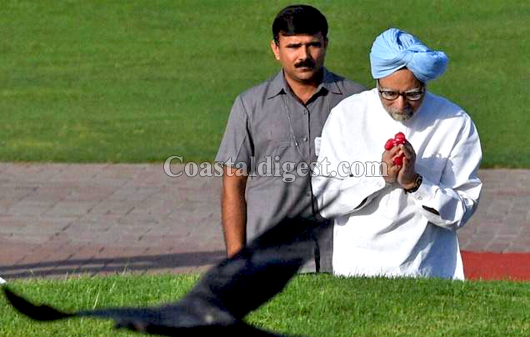New Delhi, May 27: Former Prime Minister Manmohan Singh on Wednesday hit out at the Modi government saying it was “harping” on corruption to divert people’s attention to non-issues and asserted that he never used public office to “enrich” himself, family or friends.
In a scathing attack, Dr. Singh said that institutions of democracy are under threat and the entire edifice of the welfare state is now being dismantled in the guise of promoting faster economic growth.

“As far as I am concerned, I can say in all humility that I have not used my public office to enrich myself, to enrich my family or my friends. And still the BJP government keeps on harping on this theme of corruption because it wants to distract the attention of the people to non-issues,” he said in a hard-hitting speech at an event in New Delhi.
His comments came in the wake of former TRAI chairman Pradip Baijal’s allegations that Dr. Singh had warned him of harm if he did not cooperate on 2G telecom licences. Mr. Baijal, who was probed for several years in connection with the 2G spectrum allocation scam case, also claimed that the CBI wanted him to “implicate” Arun Shourie and Ratan Tata in the case.
Asserting that many of UPA’s programmes were being repackaged and marketed as initiatives of the BJP government, Dr. Singh said, “What the BJP had opposed when we were in power are now being sold as its contribution“.
Rejecting criticism of “policy paralysis” in the UPA, he said when his government left, India was the second fastest growing economy in the world and noted that economic recovery under the current dispensation was “fragile”.
“The past is continuously being rewritten to promote a highly biased and communal view. Dissent is being suppressed,” Dr. Singh said.
“Institutions of democracy are under threat. The entire edifice of the welfare state is now being dismantled in the guise of promoting faster economic growth, whereas they are two sides of the same coin,” he said.
The Congress has tried hard to ensure that India flourishes as an open pluralistic, liberal secular democracy proud of its composite heritage, he said.
“This very idea of India is now under systemic assault. We must understand how this assault is being mounted and then come up with out response,” Dr. Singh said.





Comments
Add new comment